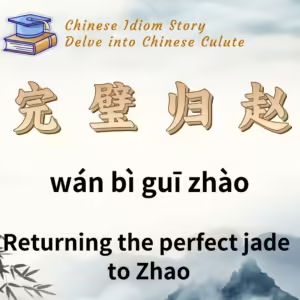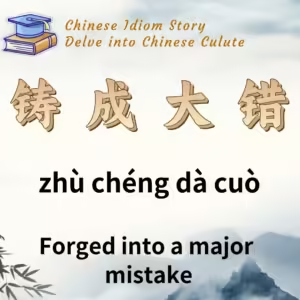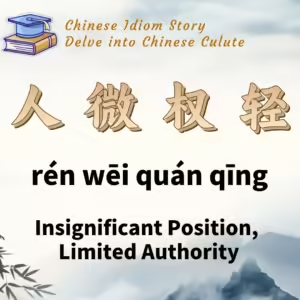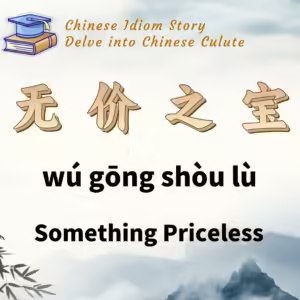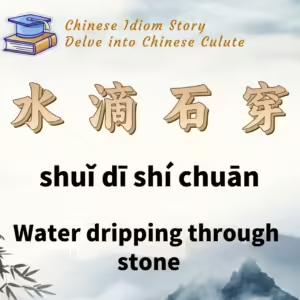
Chinese Idiom: 水滴石穿 (Shui Di Shi Chuan)
English Translation: Water dripping through stone
pīn yīn: shuǐ dī shí chuān
Idiom Meaning: This idiom means that even the most insignificant effort, when applied persistently, can achieve seemingly impossible results. It emphasizes the power of perseverance and the idea that continuous, small actions can overcome great obstacles.
Historical Source: The idiom comes from the Song Dynasty text Crane Forest Jade Dew (《鹤林玉露》) by Luo Dajing.
Idiom Story:
During the Song Dynasty, there was an official named Zhang Guaili who served as the magistrate of Chongyang County (now part of Hubei Province). One day, a minor official in charge of the county treasury was caught stealing a small amount of money. Zhang Guaili, known for his strict and harsh enforcement of the law, punished the thief severely.
The small-time thief, feeling unjustly treated for a minor theft, questioned Zhang Guaili’s decision, asking if his offense was worth such a severe punishment. Enraged by the thief’s attitude, Zhang Guaili decided to make an example of him. He wrote a judgment that included a small poem:
“一日一钱,千日一千, 绳锯木断,水滴石穿。”
The poem translates to: “One coin a day, in a thousand days a thousand coins, Rope saws through wood, water wears through stone.”
The poem illustrates that even a small, continuous theft could accumulate to a significant amount over time, just as persistent effort can achieve great results. Zhang Guaili used this metaphor to justify the severe punishment, demonstrating his belief in the principle that persistence, even in small actions, can lead to significant consequences.
Although Zhang Guaili’s method of justice was harsh and unjust, the idiom “水滴石穿” (water dripping through stone) derived from this story carries a valuable lesson. It highlights that consistent, determined effort, no matter how small, can eventually overcome even the toughest challenges. This idiom is also sometimes expressed as “滴水穿石”.

